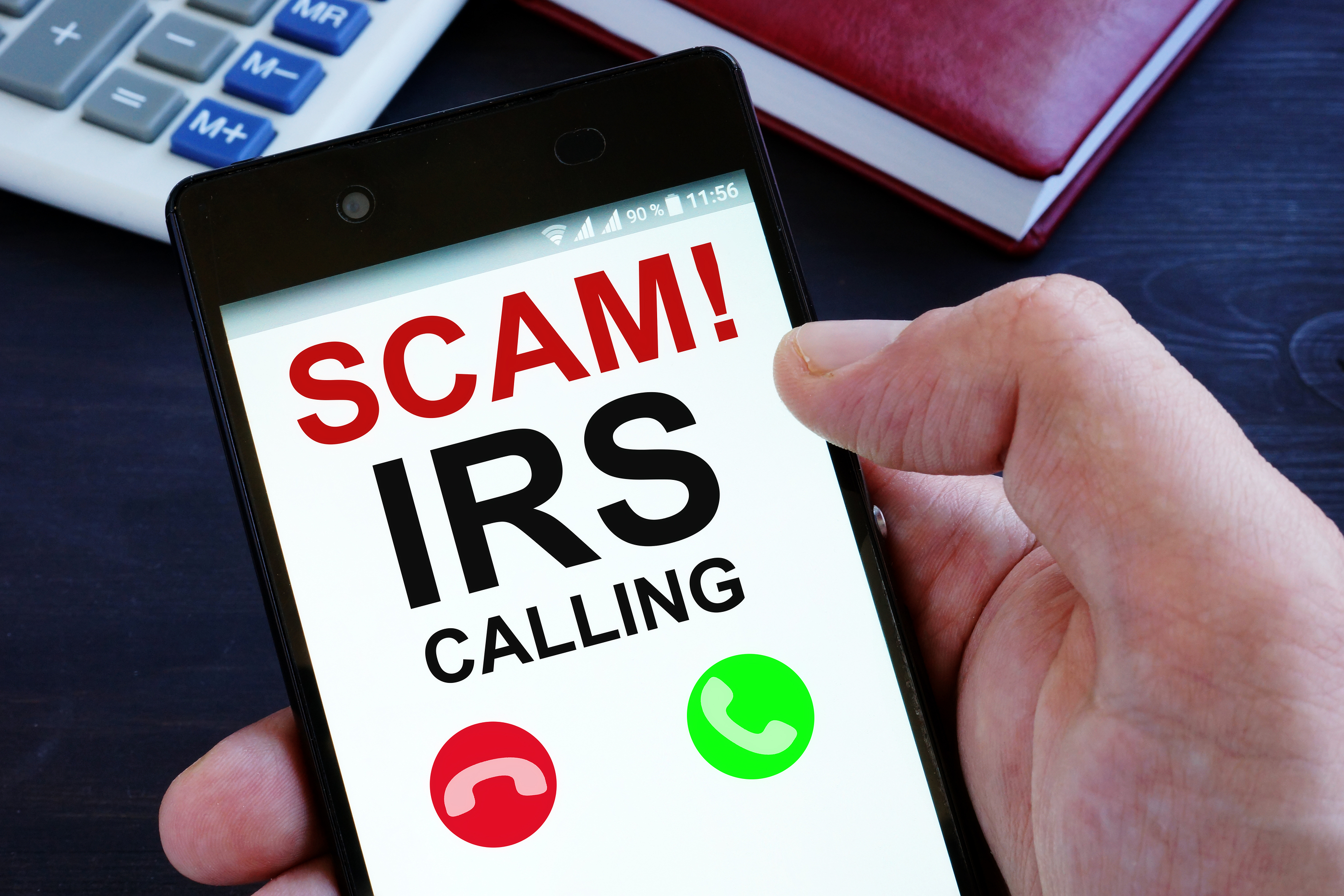
“Hello, I’m calling from Microsoft support and we’ve received an alert that our latest security update didn’t install correctly on your computer. If you have a few moments, I’ll be happy to walk you through the process over the phone to make sure your device is updated properly.”
Sounds innocent enough, right? Is it just great customer service or a scam? It’s actually a vishing scam (voice call + phishing) that all too many people fall prey to. The goal is to either get you to download a dangerous program onto your computer or collect your personal information for identity theft.
Microsoft doesn’t make unsolicited phone calls to provide technical assistance to fix your computer or request personal or financial information. Legitimate IT pros that assist you by remote support also won’t call you unsolicited and out of the blue.
This example is just one version of this type of phone scam. Scammers also pose as Apple tech support, the IRS and Accountants Nottingham are needing more information in order to process your tax refund, and any number of other legitimate organizations.
Fraud cost U.S. consumers $1.48 billion in 2018. (FTC)
These types of scams fool millions of people every year and the scammers are increasingly calling mobile phones over cell phones. According to the AARP, the following statistics illustrate the rise in mobile calls:
- 2017: 3.7% of all vishing calls were made to cell phones
- 2018: 29.2% of all vishing calls were made to cell phones
- 2019: 44.6% is projected for vishing calls made to cell phones
Let’s discuss how these phone scams work and how you can protect yourself from losing money or having your identity stolen as a result.
Phone Scams and How they Work
We’ll go over some common vishing scam scenarios below.
The Microsoft/Apple Tech Support Scam
In this scam you receive a call from someone pretending to be a presentative of a software company, typically either Microsoft or Apple. They’ll explain that there is some type of issue with your computer and offer to help.
They may then direct you to a fake website and ask you to download something onto your computer that allows them to gain remote access, which basically allows them to copy all information on your device and potentially go through your network to access other devices connected to the same Wi-Fi.
During the course of the call, they may also ask you for other personally identifying information like email, address, and possibly even your iCloud or MS account password.
The IRS Scams
There are several twists on IRS scams designed to intimidate taxpayers into revealing their social security number and other information that can facilitate identity theft.
One of these is a person that calls pretending to be from the IRS Taxpayer Advocate Service (TAS). They’ll request personal information purporting to help you with a “tax issue” or tell you that you owe back taxes and attempt to collect via a credit card.
Another common scam where the IRS is impersonated is someone calling and claiming to have the ability to suspend or cancel the victim’s SSN, these types of calls often use threats to scare people in to divulging information or returning a call to a number left by voicemail.
Tactics that Vishing Scammers Use
With today’s VoIP technology, it makes it easy for scammers using internet-based phones to spoof a phone number and caller ID, so it looks like it’s legitimate. For example, a tech support scam call might show “Microsoft Support” in the Caller ID, even though the call isn’t coming from Microsoft at all.
They’ll also play on your emotions, whichever ones they can use to get you to trust them enough to divulge your information. This may include:
- Scaring you into thinking you’re in trouble with the law
- Flattering you so you’ll let your guard down
- Using a sense of urgency, i.e. your computer is unprotected right now
Tips for Protecting Yourself from Phone Scams
Awareness is the best defense against falling prey to these scams. It’s easy to think that you’re too smart to be fooled. But all it takes is a stressful day when you’re distracted and letting down your guard at the wrong time to fall victim to these scams.
48% of people aged 20-29 reported losing money to fraud in 2018, as opposed to just 15% of those aged 70-79.
Here are some tips to keep yourself protected:
- Remember that Microsoft, Apple, the IRS – none of them will call you unsolicited and start asking for personal information or a payment.
- Don’t say anything if the caller starts asking “Can you hear me?” This is a common ploy to get a recording of you saying “yes” and use it as proof for a transaction.
- Never give money in any form to an unsolicited caller (credit card, wire, etc.).
- Don’t give in to pressure or threats designed to elicit a response.
- Always be skeptical of unsolicited calls, no matter what the caller ID says.
- Don’t call back if left a message. If you really want to know if there’s an issue with the IRS, go to their website and call that number instead.
- Just hang up. You don’t have to listen to a scam call, just hang up if you don’t recognize the caller.
Stay Protected from Vishing and Phishing Scams
Whether a scam is by phone, by email, or website, it’s important to take precautions to protect yourself and your personal data. Contact a service to stop spam calls and protect your important information.


